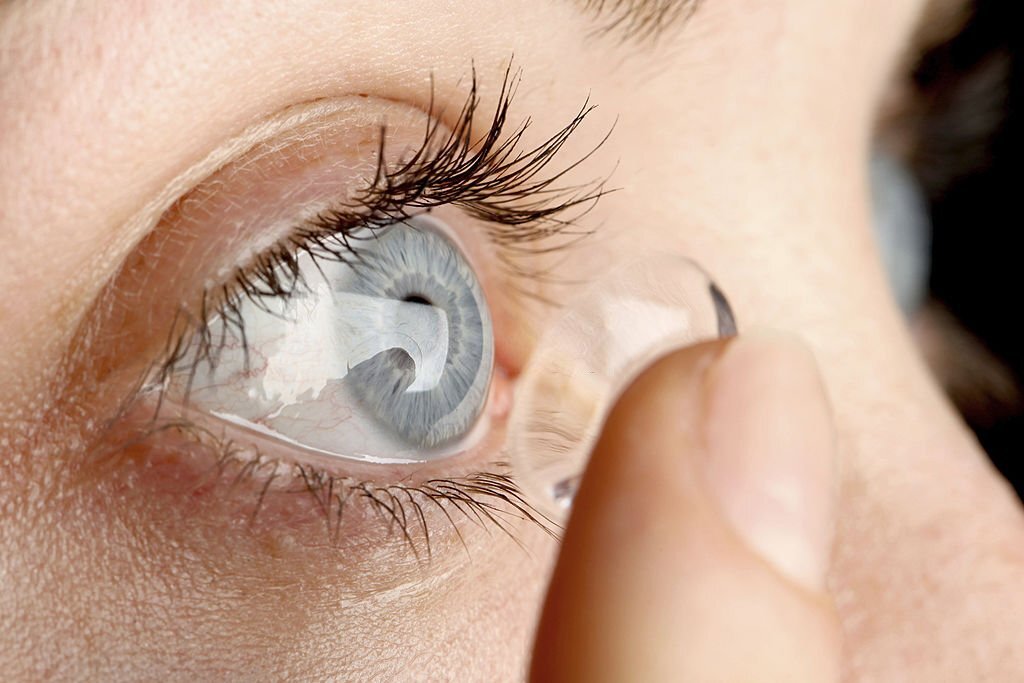Eyesight Surgery Bodrum
Eyesight Surgery Bodrum, also known as refractive surgery, is a surgical procedure to correct common vision problems such as nearsightedness, farsightedness, and astigmatism. The surgery works by reshaping the cornea, the clear front part of the eye, so that light entering the eye is properly focused on the retina, which results in clear vision.

There are many eye clinics and hospitals in Bodrum, Turkey that offer a range of eye surgeries to improve eyesight. Some of the most common types of eye surgeries available in Bodrum include:
- LASIK: This is a type of laser eye surgery that is used to correct nearsightedness, farsightedness, and astigmatism. It involves creating a flap on the cornea and using an excimer laser to reshape the cornea and improve vision.
- PRK: Photorefractive keratectomy, or PRK, is another type of laser eye surgery that can correct nearsightedness, farsightedness, and astigmatism. During PRK, the outer layer of the cornea is removed and an excimer laser is used to reshape the cornea.
- Cataract surgery: Cataract surgery is a procedure to remove the cloudy lens from the eye and replace it with an artificial lens. This surgery is performed when the natural lens of the eye becomes clouded, leading to vision problems.
- Retinal detachment surgery: This is a surgical procedure used to repair a detached retina, which can cause vision loss if left untreated.
- Glaucoma surgery: There are several types of surgical procedures that can be used to treat glaucoma, a condition that damages the optic nerve and can lead to vision loss.
It’s important to consult with a qualified ophthalmologist to determine which type of eye surgery is best for your individual needs. They will be able to assess your eye health and provide you with personalized recommendations for treatment.
Who is a good candidate for eyesight surgery?
The ideal candidate for eyesight surgery depends on several factors, including the type of surgery being considered, the patient’s age, overall health, and the condition of their eyes. Generally, good candidates for eyesight surgery:
- Are adults over the age of 18 with a stable prescription: It’s important that your prescription has remained stable for at least a year before considering eyesight surgery.
- Have good overall eye health: Candidates should be free of any eye diseases, infections, or injuries that could interfere with the healing process or affect the outcome of the surgery.
- Are not pregnant or nursing: Hormonal changes during pregnancy and nursing can cause changes to the shape of the cornea and affect vision.
- Have realistic expectations: Candidates should understand the benefits and limitations of the procedure and have realistic expectations for the outcome.
- Have a strong motivation to improve their vision: Candidates should have a strong desire to improve their vision and be willing to follow all pre- and post-operative instructions provided by their surgeon.

It’s important to note that not everyone is a good candidate for eyesight surgery. People with certain medical conditions, such as autoimmune diseases or uncontrolled diabetes, may not be good candidates for these procedures. Additionally, certain eye conditions such as severe dry eye, corneal thinning, or abnormal corneal curvature may also make surgery less appropriate. It’s best to consult with a qualified ophthalmologist to determine if you are a good candidate for eyesight surgery.
What are the potential risks and complications of eyesight surgery?
As with any surgical procedure, there are potential risks and complications associated with eyesight surgery. However, most people experience no serious complications and are pleased with the results of the surgery. Some potential risks and complications of eyesight surgery include:
- Overcorrection or undercorrection: Sometimes, the surgery may result in an overcorrection or undercorrection of vision, which may require additional surgery or the use of corrective lenses.
- Dry eye syndrome: Eyesight surgery can cause temporary or permanent dry eye syndrome, which may cause discomfort and affect vision.
- Infection: Although rare, there is a small risk of infection following eyesight surgery, which may require additional treatment.
- Glare, halos, or double vision: Some people may experience glare, halos, or double vision after surgery, especially at night or in low-light conditions.
- Corneal haze: In some cases, the cornea may become hazy after surgery, which can affect vision. This is more common with PRK than with LASIK.
- Flap complications: LASIK involves creating a flap in the cornea, and in rare cases, the flap may become dislodged or wrinkled, which can affect vision.
- Vision loss: Although rare, there is a small risk of vision loss following eyesight surgery.
It’s important to discuss the potential risks and complications of eyesight surgery with your ophthalmologist and to carefully consider the benefits and risks of the procedure before making a decision. Your surgeon will provide you with detailed information about the risks and complications associated with the specific type of eyesight surgery you are considering.

What is the recovery time for eyesight surgery?
The recovery time for eyesight surgery varies depending on the type of surgery performed and the individual patient’s healing process. However, there are some general guidelines for recovery times for the most common types of eyesight surgery:
- LASIK: Many patients are able to return to work and normal activities within a day or two of the surgery, but some people may experience blurred vision, sensitivity to light, and mild discomfort for a few days to a week after the surgery. Most people are able to resume normal activities within a week after surgery.
- PRK: PRK has a longer recovery time than LASIK, as the outer layer of the cornea needs to heal after the surgery. It may take several days to a week for the outer layer of the cornea to regenerate, and vision may be blurry during this time. Full visual recovery may take several weeks to several months.
- Cataract surgery: Most people experience improved vision within a day or two after cataract surgery, but it may take several days to several weeks for vision to fully stabilize.
- Retinal detachment surgery: Recovery time varies depending on the severity of the detachment and the type of surgery performed. Patients may need to restrict activities for a period of time and may need several follow-up appointments with their surgeon.
- Glaucoma surgery: Recovery time varies depending on the type of surgery performed, but most people can resume normal activities within a few days to a week after surgery.
It’s important to follow all post-operative instructions provided by your surgeon, including using any prescribed eye drops, avoiding rubbing your eyes, and avoiding strenuous activities for a period of time. Your surgeon will provide you with specific instructions for your individual case.
Is eyesight surgery permanent?
Eyesight surgery is generally considered to be a permanent solution for vision correction. The goal of most types of eyesight surgery is to permanently alter the shape of the cornea or lens in the eye, which can improve the eye’s ability to focus light and improve vision.
However, it’s important to note that eyesight surgery cannot prevent age-related changes to the eyes, such as presbyopia (the natural loss of near vision that occurs with age) or cataracts (clouding of the eye’s natural lens). Additionally, some people may experience changes in their vision over time that may require additional treatment or the use of corrective lenses.
It’s important to have realistic expectations about the outcome of eyesight surgery and to discuss any concerns or questions with your surgeon. Your surgeon can provide you with information about the long-term effects of eyesight surgery and can help you determine if the procedure is right for you. It’s also important to continue regular eye exams following eyesight surgery to monitor the health of your eyes and ensure the best possible vision outcomes.
How much does eyesight surgery cost?
The cost of Bodrum eyesight surgery can vary depending on the type of surgery and where it is performed. In the United States, the cost can range from a few thousand dollars to several thousand dollars per eye. It’s important to check with your insurance company to see if the procedure is covered under your plan.
Overall, eyesight surgery can be a good option for many people who want to reduce their dependence on glasses or contact lenses. However, it’s important to have a thorough consultation with an eye doctor to determine if the surgery is right for you.
The cost of eyesight surgery can vary depending on a variety of factors such as the type of surgery, the geographic location, and the experience of the surgeon. Some common types of eyesight surgeries include LASIK, PRK, cataract surgery, and glaucoma surgery.
In the United States, LASIK surgery typically costs between $2,000 and $4,000 per eye, while PRK surgery can cost between $1,500 and $3,000 per eye. Cataract surgery can cost between $3,000 and $5,000 per eye, depending on the type of intraocular lens used. Glaucoma surgery costs can vary depending on the type of procedure, but typically range between $1,500 and $6,000 per eye.
It’s important to note that health insurance may cover some or all of the cost of eyesight surgery in certain cases, such as if the surgery is deemed medically necessary. Additionally, many surgeons offer financing options or payment plans to help patients afford the cost of the procedure.
The cost of eyesight surgery in Turkey can vary depending on the type of surgery and the specific clinic or hospital where the procedure is performed. Generally, eyesight surgeries in Turkey tend to be less expensive than in many other countries, including the United States and Western Europe.
For example, LASIK surgery in Turkey can range from around 1,500 to 2,500 Turkish Lira (TRY) per eye, which is equivalent to approximately $200 to $330 USD. Cataract surgery in Turkey can range from around 3,500 to 6,000 TRY per eye, which is equivalent to approximately $470 to $790 USD. Glaucoma surgery costs can vary depending on the specific procedure and the clinic, but can range from around 2,000 to 7,000 TRY, which is equivalent to approximately $265 to $930 USD.
It’s important to note that these prices are estimates and can vary depending on individual factors such as the patient’s specific needs and the clinic’s location and reputation. It’s also important to thoroughly research and choose a reputable and experienced surgeon and clinic for any eyesight surgery, regardless of the cost.

